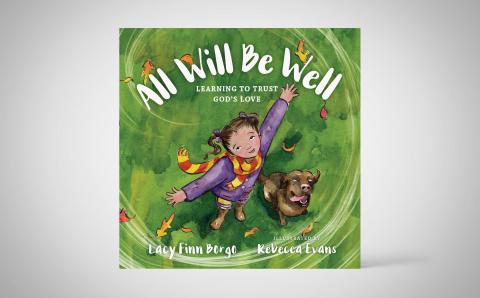Buck Brannaman is a real-life horse whisperer. Typically, wild horses are tamed by harshly “breaking them in.” But Brannaman works with the horses’ natures to gently train them to accept and work with humans.
“Abused horses are like abused children,” Brannaman said. “They trust no one and expect the worst. But patience, leadership, compassion and firmness can help them overcome their pasts” (“Whispering Wisdom,” Helena Independent Record, April 30, 2004). Brannaman’s compassionate, natural approach to horse training has revolutionized the equestrian world.
I used to believe strongly in the concept of “tough love.” But now I am much more cautious about it. It is often misunderstood, misapplied, and even exploited to cover abuse.
The common view of “tough love”—treating people sternly or harshly with the intent to help them in the long run—is incomplete and open to misuse and abuse. People might wrongfully think that being harsh or even mean can be “tough love” as long as you have good intentions. You need to be cruel to be kind, as the saying goes.
However, tough love is less about inflicting pain and punishment and more about maintaining boundaries and accountability. Tough love works only within a trusted relationship in specific contexts and often along with other methods. It is not a standalone, one-size-fits-all approach. Sports coaches, for example, can administer tough love because the athletes trust that it’s for improving their abilities and performance. Children might understand that their parent’s tough enforcement of rules is an act of love because they know through experience that their parents unconditionally love them. It is important that the recipient of tough love recognizes it as such for it to be effective.
Sean Schat’s article “Reconsidering How the Church Communicates Love” makes this point, among others, that when offering love or care, we often fail to consider the recipient’s perceptions and focus mostly on our own intentions. That means our attempts to love or care likely will fail.
Without the context of an established caring and trusting relationship, tough love can easily backfire. How many people actually change their minds about abortion because they were called “baby killers”? How many people permanently change their racist behaviors because they were shamed? Perhaps Jesus’ harsh words to the Pharisees did not change their minds, but might even have hardened their hearts to kill him. Was that Jesus’ plan all along to ensure a path to the cross?
Worse, the concept of tough love has often been used by domineering people to excuse and rationalize their harsh words and actions. There is a fine line between genuine tough love and abuse masquerading as tough love. This is why I am hesitant and cautious about “tough love” these days. I don’t want to cross the line from being “cruel to be kind” to simply being cruel. Too often in history the language of tough love has been abused to justify unloving ideas, actions, and systems. We need to be very careful.
There are other ways of fostering change in people’s lives. “Coddling” is not the only alternative to tough love. Scripture wisely counsels that “a gentle answer turns away wrath, but a harsh word stirs up anger” (Prov. 15:1). Like Brannaman’s horse whispering, there are patient, compassionate, and gentle ways for us to help each other grow in Christ. The church needs to learn and do more “soul whispering,” so to speak, and use less coercive browbeating.
About the Author
Shiao Chong is the former editor-in-chief of The Banner. He served as editor from 2016 to 2025. He attends Fellowship Christian Reformed Church in Toronto, Ont.
Shiao Chong es el redactor jefe de The Banner. El asiste a Iglesia Comunidad Cristiana Reformada en Toronto, Ont.
시아오 총은 더 배너 (The Banner)의 편집장이다. 온타리오 주 토론토의 펠로우쉽 CRC에 출석한다.
You can follow him @shiaochong (Twitter) and @3dchristianity (Facebook).









